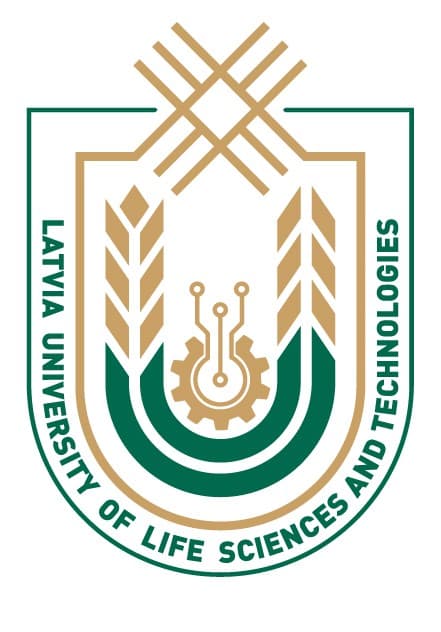References
- Abraham, S.E., Karns, L.A., Shaw, K. & Mena, M.A. (2001). Managerial competencies and the managerial performance appraisal process. Journal of Management Development, 20 (10), 842-852.10.1108/02621710110410842
- Allen, J., Ramaekers, G., & Van der Velden, R. (2005). Measuring Competencies of Higher Education Graduates. New Directions Institutional Research, 2005 (126), 49-5910.1002/ir.147
- Aykol, B., & Leonidou, L.C. (2015). Researching the green practices of smaller service firms: A theoretical, methodological, and empirical assessment. Journal of Small Business Management, 53 (4), 1264-128810.1111/jsbm.12118
- Boyatzis, R.E. (1982). The Competent Manager: A model for Effective Performance. New York: John Wiley & Sons.
- Delamare Le Deist, F. & Wintertone, J. (2005). What Is Competence? Human Resource Development International, 8 (1), 27-46.10.1080/1367886042000338227
- Doyle, A. (2020). Hard Skills vs. Soft Skills: What’s the Difference? The Balance Careers. Retrieved June 3-18, 2021, from https://www.thebalancecareers.com/hard-skills-vs-soft-skills-2063780.
- European Commission. (2011). Rio+20: towards the green economy and better governance. Communication from the Commission to the European Parliament, the Council, the European Economic and Social Committee and the Committee of the Regions. COM/2011/363.
- Eco-union, MIO-ECSDE, GEC & MAVA Foundation. (2016). Towards a Green Economy in the Mediterranean. Assessment of National Green Economy and Sustainable Development Strategies in Mediterranean Countries.
- European Centre for the Development of Vocational Training (CEDEFOP). (2019). Skills for green jobs. European synthesis report. Luxembourg: Publications Office of the European Union.
- European Environment Agency (EEA). (2018). Environmental indicator report. Retrieved June 3-18, 2021, from https://www.eea.europa.eu/publications/environmental-indicator-report-2012/environmental-indicator-report-2012-ecosystem/part1.xhtml.
- Eurostat. (2020a, February). Classification of environmental protection activities (CEPA). Retrieved June 3-18, 2021, from https://ec.europa.eu/eurostat/statisticsplained/index.php?title=Glossary:Classification_of_environmental_protection_activities_(CEPA).
- Eurostat. (2020b, February). Classification of environmental protection activities (CEPA) and classification of resource management activities (CReMA). Retrieved June 3-18, 2021, from https://ec.europa.eu/eurostat/ramon/nomenclatures/index.cfm?TargetUrl=LST_NOM_DTL&StrNom=CL_CEPAREM&StrLanguageCode=EN&IntPcKey=&StrLayoutCode=HIERARCHIC.
- Eurostat. (2020c, June). Environmental economy – statistics on employment and growth. Retrieved June 3-18, 2021, from https://ec.europa.eu/eurostat/statistics-explained/index.php?title=Environmental_economy_%E2%80%93_statistics_on_employment_and_growth&oldid=477477#Employment_by_environmental_domain.
- Gregg, C., Strietska-Ilina, O., & Büdke, C. (2015). Anticipating skill needs for green jobs. A practical guide. Zeneva: International Labour Office.
- Hoogendoorn, B., Guerra, D., & Van der Zwan, P. (2015). What drives environmental practices of SMEs? Small Business Economics, 44 (4), 759–78110.1007/s11187-014-9618-9
- International Energy Agency (IEA). (2015). Accelerating energy efficiency in small and medium-sized enterprises: Powering SMEs to catalyse economic growth. Paris: OECD.
- International Labour Organization. (2018). Greening with jobs. Word employment social outlook. Zeneva: International Labour Office.
- Johnson, M.P., & Schaltegger, S. (2016). Two decades of sustainability management tools for SMEs: How far have we come? Journal of Small Business Management, 54 (2), 481–505.10.1111/jsbm.12154
- London Stock Exchange (2019, October). London Stock Exchange launches Green Economy Mark and Sustainable Bond Market. Retrieved June 3-18, 2021, from https://www.lseg.com/resources/media-centre/press-releases/london-stock-exchange-launches-green-economy-mark-and-sustainable-bond-market
- Mansfield, R. S. (1996). Building Competency Models: Approaches for HR Professionals. Human Resource Management, 35 (1), 7-18.10.1002/(SICI)1099-050X(199621)35:1<7::AID-HRM1>3.0.CO;2-2
- McLagan, P. (1997). Competencies: The Next Generation. Training & Development, 51 (4), 40–47.
- Prahalad, C.K. & Hamel, G. (1990). The Core Competence of the Corporation. Harvard Business Review, 8 (3), 79-91.
- SB Bridge. (2021). South Baltic Bridge for Green Tech Future. Retrieved June 1-18, 2021, from https://sbbridge.eu/
- Skorkova, Z. (2016). Competency models in public sector. Procedia - Social and Behavioral Sciences, 230 (2016), 226 – 234.10.1016/j.sbspro.2016.09.029
- Trivellasa, P., & Reklitisb, P. (2014). Leadership competencies profiles and managerial effectiveness in Greece. Procedia Economics and Finance, 9 (2014), 380 – 39010.1016/S2212-5671(14)00039-2
- United Nations Environment Programme (UNEP). (2011). Towards a green economy: pathways to sustainable development and poverty eradication. Nairobi: United Nations Environment Programme
- Weinert, F.E. (2001). Concept of competence: A conceptual clarification. In D.S. Rychen & L.H. Salganik (Eds.), Defining and Selecting Key Competencies (pp. 45-65). Seattle, WA: Hofgrefe & Huber.
- White, R.W. (1959). Motivation Reconsidered: The Concept of Competence. Psychological Review, 66 (5), 279–333.10.1037/h0040934
